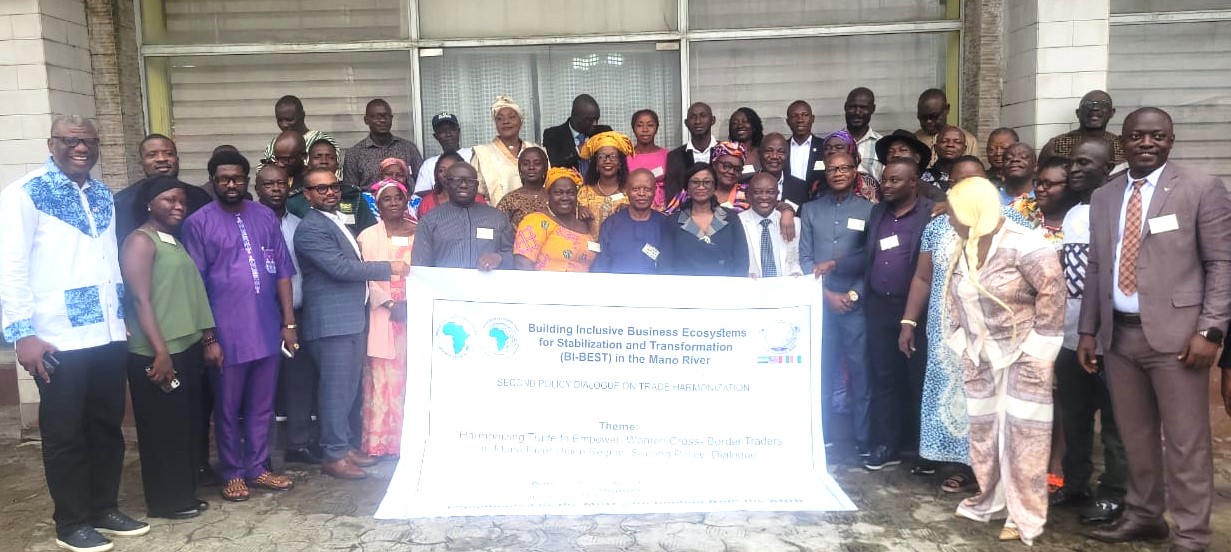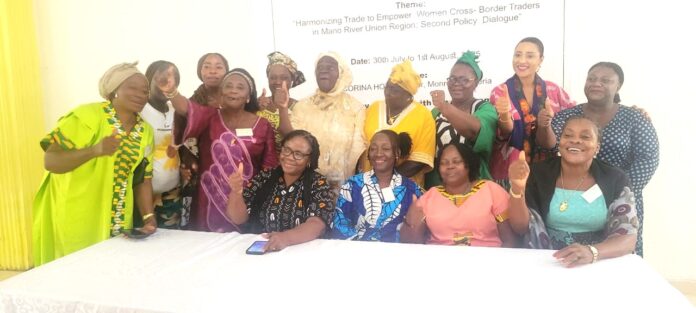The Mano River Union (MRU) Secretariat has concluded a three-day policy dialogue in Monrovia aimed at harmonizing cross-border trade regulations to address persistent challenges faced by women traders operating along the Liberia–Sierra Leone border.
The event brought together over 30 participants, including women traders from Foya and Bo Waterside in Liberia, and Koindu and Jendema in Sierra Leone. Key government representatives from both countries also attended, including officials from immigration, customs, and the ministries of finance, commerce, and gender.
Challenges and Recommendations
Participants highlighted a range of obstacles impeding women’s participation in cross-border trade, including high taxation, rigid security procedures, and inadequate facilities at border points. Among the recommendations proposed were reducing border taxes and fees, establishing rest centers with hygiene facilities , Providing incentives for border officials, such as immigration and customs staff and improving access to finance and trade-related awareness for women
Women traders emphasized the need for both Monrovia and Freetown to create a more enabling environment for informal trade, which remains a vital source of income for many households in border communities.
MRU Leadership Responds
MRU Secretary-General Ambassador Simeon Moribah pledged to elevate the recommendations to ministerial levels and, ultimately, to the presidents of Liberia and Sierra Leone. He stressed the importance of coordinated government action to improve trade conditions for women.
“We must work together to ensure women traders have access to finance, flexible security arrangements, and a fair tax regime,” Moribah said. “Governments must also domesticate and implement international and regional protocols that support cross-border trade.”
BI-BEST Project Support
Ambassador Ange Konan-Monu, MRU’s Deputy Secretary for Peace, Security, Democracy, and Governance, underscored the role of the Building Inclusive Ecosystem for Sustainable Transformation (BI-BEST) Project, which is supported by the African Development Bank. She clarified that while the project does not offer direct financial loans, it provides technical assistance to help women manage and grow their businesses.

“Gender-based violence and economic exclusion are real threats to women in trade,” Konan-Monu said. “This dialogue is a step toward policy reform, but it requires sustained commitment from both government and private sector actors.”
Konan-Monu, who also coordinates the BI-BEST Project, urged participants to remain engaged in the policy process and work collaboratively to implement the recommendations. She noted that cross-border trade has the potential to significantly improve livelihoods in border communities.






















